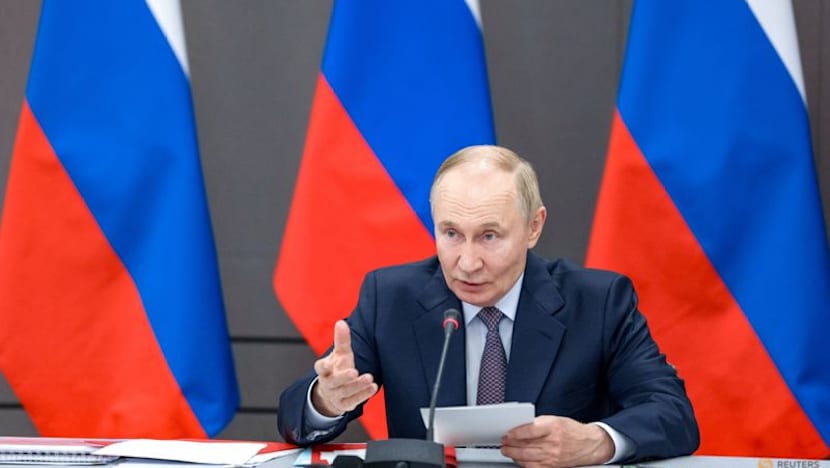World
Putin Proposes One-Year Extension to Nuclear Arms Treaty with Trump

Russian President Vladimir Putin has proposed a one-year extension of the New START Treaty, the last remaining nuclear arms control agreement between the United States and Russia. This offer, made on September 22, 2023, comes as both nations navigate escalating tensions, particularly surrounding the ongoing conflict in Ukraine. The treaty, which limits the number of deployed strategic nuclear warheads to 1,550 on each side, is set to expire on February 5, 2026.
During a meeting of his Security Council, Putin stated that Russia is willing to continue adhering to the treaty’s central numerical limits for an additional year. He emphasized that this extension could facilitate dialogue on arms control, which he believes is crucial for global non-proliferation. Putin noted, “We believe that this measure will only be viable if the United States acts in a similar manner and does not take steps that undermine or violate the existing balance of deterrence capabilities.”
Pressure on Putin amid Ukraine Conflict
The proposal marks a shift in Moscow’s previous stance, where it insisted that discussions on arms control would only occur if overall diplomatic relations improved. Putin’s offer comes at a time when the Ukrainian government is urging President Donald Trump to impose stricter sanctions on Russia, highlighting the complex interplay of international relations. The war in Ukraine is a significant factor in the current diplomatic landscape, contributing to heightened East-West tensions that have not been seen since the Cold War.
The Russian president’s comments indicate a willingness to engage in negotiations, despite the lack of communication between the two nations regarding the treaty’s future. As of now, discussions about renewing or amending the New START Treaty have not commenced, largely due to the divergent views on the situation in Ukraine. Trump has previously expressed interest in pursuing a new nuclear arms control agreement, potentially including China, though Beijing has rejected such proposals.
Monitoring U.S. Nuclear Activities
Putin also mentioned that Russia would closely monitor U.S. nuclear arsenals and defense strategies, especially concerning Washington’s plans to enhance its missile defense systems and proposals for deploying missile interceptors in space. He remarked, “We will proceed on the basis that the practical implementation of such destabilising actions could nullify our efforts to maintain the status quo in the field of START.”
Without a formal response from the U.S. government to Putin’s offer, the future of the New START Treaty remains uncertain. The next few months are critical as both countries approach the treaty’s expiration. The outcome will significantly impact global nuclear stability and the broader context of international relations.
-

 Business5 months ago
Business5 months agoKenvue Dismisses CEO Thibaut Mongon as Strategic Review Advances
-

 Lifestyle4 months ago
Lifestyle4 months agoHumanism Camp Engages 250 Youths in Summer Fest 2025
-

 Sports4 months ago
Sports4 months agoDe Minaur Triumphs at Washington Open After Thrilling Comeback
-

 Sports5 months ago
Sports5 months agoTupou and Daugunu Join First Nations Squad for Lions Clash
-

 Top Stories5 months ago
Top Stories5 months agoColombian Senator Miguel Uribe Shows Signs of Recovery After Attack
-

 World5 months ago
World5 months agoASEAN Gears Up for Historic Joint Meeting of Foreign and Economic Ministers
-

 Health4 months ago
Health4 months agoNew Study Challenges Assumptions About Aging and Inflammation
-

 Business5 months ago
Business5 months agoOil Prices Surge Following New EU Sanctions on Russia
-

 Entertainment4 months ago
Entertainment4 months agoDetaşe-Sabah Violin Ensemble Captivates at Gabala Music Festival
-

 Entertainment4 months ago
Entertainment4 months agoBaku Metro Extends Hours for Justin Timberlake Concert
-

 Top Stories5 months ago
Top Stories5 months agoRethinking Singapore’s F&B Regulations Amid Business Closures
-

 Business5 months ago
Business5 months agoU.S. House Approves Stablecoin Bill, Sends to Trump for Signature









